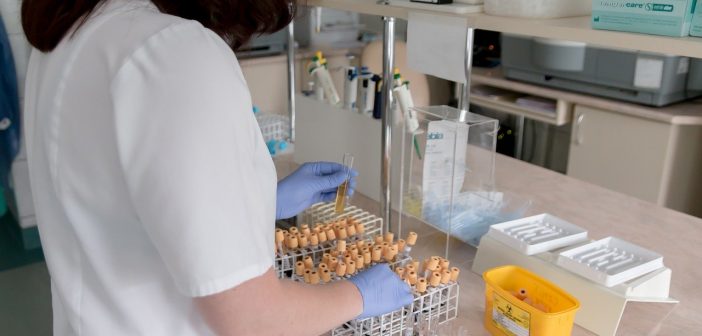Scientific studies are designed with a number of control experiments and replications such that the answer to the question being investigated is clear. In complex experimental set-ups like clinical trials, results are often less clear making extrapolation of data impossible [1]. In fact, reports have indicated that many clinical trials are insufficiently designed, yielding ambiguous or useless results [1-3]. Other issues such as recruiting enough patients for the correct sampling size [4], bias and perceptions during recruitment [2, 5], patient withdrawal from a trial [5, 6], non-transparency or lack of enough expert review [1, 7] are very real factors that may confound the study making clear cut conclusions hard to reach. In addition, drug validation usually continues after approval for market, at the population level where rare, adverse or off-target effects are only observed with a huge sample size and over longer periods of time [8].
The entire process of drug development is lengthy and arduous because it involves rigorous testing for efficacy and safety in humans. However, this process is necessary in order to provide the public with a reasonably complete profile of the new drug or an existing drug used for a new indication. Rigor in clinical trials is also necessary in order to minimize tragedies such as those from the BIA 10-2474 trial [9, 10], the Theralizumab trial [11], the gene therapy trial for ornithine transcarbamylase (OTC) deficiency [12], and the Thalidomide disaster during the 1950s and-60s [13].
Each tragedy has led to many efforts taken by the scientific community, medical institutions, and government bodies to increase communication, consultation, and recognize problems early on to prevent harm and better assess applicability of future trials [14-17]. However, the process from drug discovery to market is still far from perfect. During the past few months, the world has witnessed the complexity and oftentimes inconclusiveness in scientific studies. With the recent news of positive results from the Remdesivir trial in severe COVID-19 patients and accelerated FDA approval of the drug [18, 19], we need to remind ourselves that more work still needs to be done.
- Ioannidis, J.P., Why Most Clinical Research Is Not Useful. PLoS Med, 2016. 13(6): p. e1002049.
- Treweek, S. and M. Zwarenstein, Making trials matter: pragmatic and explanatory trials and the problem of applicability. Trials, 2009. 10: p. 37.
- Slattery, P., A.K. Saeri, and P. Bragge, Research co-design in health: a rapid overview of reviews. Health Res Policy Syst, 2020. 18(1): p. 17.
- Reynolds, T., Clinical trials: can technology solve the problem of low recruitment? BMJ, 2011. 342: p. d3662.
- Lehmann, B.A., et al., “And Then He Got into the Wrong Group”: A Qualitative Study Exploring the Effects of Randomization in Recruitment to a Randomized Controlled Trial. Int J Environ Res Public Health, 2020. 17(6).
- Cleland , J.G.F., et al., A method to reduce loss to follow ‐ up in clinical trials: informed, withdrawal of consent. European Journal of Heart Failure 2004. 6
(1).
- Miyakawa, T., No raw data, no science: another possible source of the reproducibility crisis. Mol Brain, 2020. 13(1): p. 24.
- Raj, N., et al., Postmarket surveillance: a review on key aspects and measures on the effective functioning in the context of the United Kingdom and Canada. Ther Adv Drug Saf, 2019. 10: p. 2042098619865413.
- Randerson, J., Fatal French clinical trial failed to check data before raising drug dose. Nature News, 2016.
- Kaur, R., P. Sidhu, and S. Singh, What failed BIA 10-2474 Phase I clinical trial? Global speculations and recommendations for future Phase I trials. J Pharmacol Pharmacother, 2016. 7(3): p. 120-6.
- Attarwala, H., TGN1412: From Discovery to Disaster. J Young Pharm, 2010. 2(3): p. 332-6.
- Rinde, M., The Death of Jesse Gelsinger, 20 Years Later, in Science History Institute – Distillations. 2019.
- Vargesson, N., Thalidomide-induced teratogenesis: history and mechanisms. Birth Defects Res C Embryo Today, 2015. 105(2): p. 140-56.
- Lipman, P.D., L. Dluzak, and C.M. Stoney, Is this study feasible? Facilitating management of pragmatic trial planning milestones under a phased award funding mechanism. Trials, 2019. 20(1): p. 307.
- Dal-Ré, R., P. Janiaud, and J.P.A. Ioannidis, Real-world evidence: How pragmatic are randomized controlled trials labeled as pragmatic? BMC Med, 2018. 16(1): p. 49.
- Reijers, J.A.A., et al., Adverse immunostimulation caused by impurities: The dark side of biopharmaceuticals. Br J Clin Pharmacol, 2019. 85(7): p. 1418-1426.
- Van Norman, G.A., Limitations of Animal Studies for Predicting Toxicity in Clinical Trials: Is it Time to Rethink Our Current Approach? JACC Basic Transl Sci, 2019. 4(7): p. 845-854.
- Diseases, N.I.o.A.a.I., NIH Clinical Trial Shows Remdesivir Accelerates Recovery from Advanced COVID-19, N.I.o. Health, Editor. 2020.
- Gilead, Gilead Announces Results From Phase 3 Trial of Investigational Antiviral Remdesivir in Patients With Severe COVID-19, Gilead, Editor. 2020.







